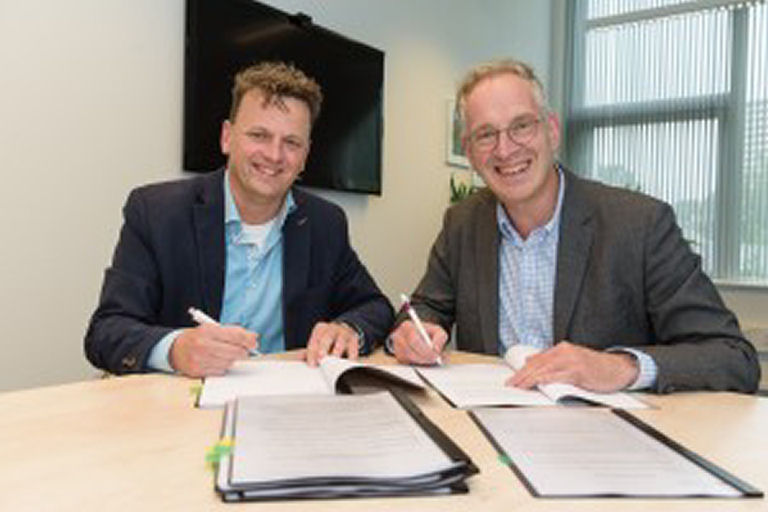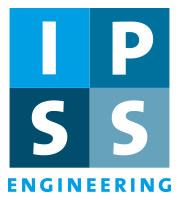 Wageningen University & Research and IPSS Engineering have signed a long-term cooperation agreement for the further development, optimization and commercialization of the new anti-solvent crystallization technology ProKris.
Wageningen University & Research and IPSS Engineering have signed a long-term cooperation agreement for the further development, optimization and commercialization of the new anti-solvent crystallization technology ProKris.
Both parties have been cooperating in this field in a number of projects since 2014. Currently, a project with the objective to build the first pilot installation for the ProKris technology is running, focussing on results by the end of this year. IPSS Engineering will realise this pilot installation in a dedicated technology hall, situated in the Plus Ultra building on the Wageningen Campus.
New technology to isolate valuable components
The anti-solvent crystallization technology is based on the use of anti-solvents for the separation process, a very effective and cost-efficient way to isolate valuable components such as sucrose, fructose, lactose, inulin and isosaccharinic acid from complex mixtures such as sugar beets, beet pulp, black liquor and all other sugar containing feedstocks and waste streams.
The tests in the pilot installation are not solely focused on the implementation of the anti-solvent crystallization process but also on the mass- and energy balance and integration. This will illustrate the market potential by generating a business model. For the market implementation, WUR and IPPS are not just focussing on the agrifood domain but also at the chemical market where sugar becomes more and more useful as a raw material.
Easy scalable technology
The process enables sugar extraction from various feedstocks, while using much less energy than traditional sugar extraction techniques. The main benefits of the technology are the energy efficiency, the easy scalable technology and the possible use of various sugar containing feedstocks and waste streams. WUR and IPSS will be focussing on niches in the European sugar market. These include countries and regions currently not producing sugar, organically produced sugar and opportunity driven unit sales.
Several launching customers from Europe (Ireland, Germany, Portugal) and North America and Africa have already shown interest, either in the small scale technology for their own producing facilities or in buying a ProKris stand-alone small scale sugar installation to develop a sugar production market in their own country. The small-scale low Capex ProKris plants enable local farmers to reintroduce sugar beets to their crops, and to start processing sugar in collaboration with local governments, without the need of large, high-risk investments.
Note for the editor
For more information, please contact:
Gulden Yilmaz, programme manager biorefinery Wageningen Food & Biobased Research – tel. +31 (0)317 480238 / email gulden.yilmaz@wur.nl
Gerrit Gerritsen, director IPSS Engineering – tel. +31-(0)317 421 727 / emailggerritsen@ipss.nl





